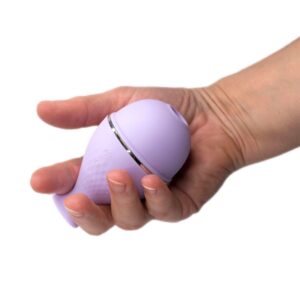“What contraceptives can I use during cancer treatment?”
Cancer nurse Beth says...
This is a LONG answer because it’s different for every cancer. This should be discussed at the very beginning of your treatment course. Depending on what cancer and cancer treatment you have will depend which contraceptives may be suitable for you. This is why it is important to discuss this with the medical team who are looking after you. They should ask you about this before you start treatment and if you do need to change contraceptive treatment they can arrange this for you. Advice will differ depending what treatment you are having.
When you start treatment your Doctors may need to start a hormone medicine which stops your periods (to reduce the risk of bleeding when your platelets are low). This may be in the form of tablets, Norethisterone, or a monthly or 3 monthly injection. (This would not be given to any person who is being treated for breast cancer). Whilst they will stop your periods they are not a reliable contraceptive.
The Contraceptive Pill
If you are already on the pill and you wish to continue on it, it is important to discuss this with your medical team. Some cancer treatments can increase the risk of clots forming, especially around central lines (Port a caths, PICC’s, and Hickman Lines) and this risk may be increased by the use of the oral contraceptive pill. It is important to remember that it will not protect you from any infections, nor will it protect your partner from traces of chemotherapy that may be present in your body secretions. Chemotherapy side effects, such as sickness and diarrhoea, can also make the contraceptive pill less effective.
Intrauterine device (IUT) – coil
An IUT is a small, T-shaped plastic device that can either be wrapped in copper (IUD) or contain hormones (IUS or Mirena-coil). The IUT is inserted into your uterus by your doctor. A plastic string tied to the end of the IUT hangs down through the cervix into the vagina and allows for removal at a later date. The copper IUD can be associated with heavy periods, so if you had an IUT you may also need a hormonal method of suppressing your periods whilst on treatment. Most people using the IUS do not get any periods. Both IUTs can stay in place for many years and are effective forms of contraception, however you would still be need to use barrier contraception for the reasons stated above.
Depo provera
The progestogen is injected into a muscle and then is gradually released into the bloodstream. It works mainly by stopping the release of the egg from the ovary (ovulation). It also thickens the mucus made by the cervix which forms a mucus plug. This stops sperm getting through to the womb to fertilise an egg. It also makes the lining of the womb thinner. This makes it unlikely that a fertilised egg will be able to implant in the womb. This effect lasts for 3 months. You will continue to have periods after the injection and these can be irregular, for that reason if you are receiving chemotherapy that will reduce your platelet counts, this would not necessarily be a good choice for you. Using a condom would still be necessary whilst receiving the chemotherapy and for at least 5 days after.
Nexplanon/Implanon Implant
The Nexplanon implant contains a progestogen which works similarly to the Depo-provera. It is inserted under the skin of your upper arm and can stay there for 3 years. Some Nexplanon/Implanon users get no periods whereas others get irregular bleeding. If you want to continue using or start using the implant as your form of contraception please discuss with your medical team as it may interact with your treatment (and no longer be reliable as contraception) and/or need additional treatment to manage the bleeding.
Emergency contraception
If you have unprotected sex and are not using any form of contraception you/your partner can also use emergency contraception (the Morning-after-pill) up to 5 days after unprotected sex. There are 2 different tablets now available as well as the coil. Because of possible drug interactions it is best if you contact your CNS or a local sexual health or contraception clinic for further advice.




